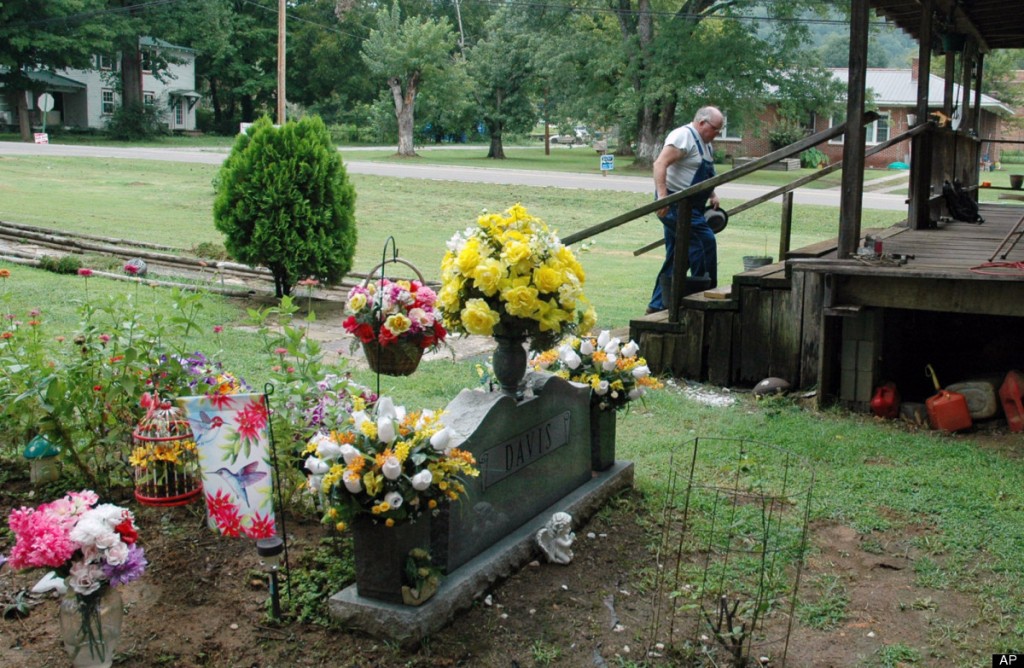James Davis is 73 years old. When his wife Patsy died in 2009, he buried her at her own request, in front of the log cabin he had built himself and where they had lived their lives together in the city of Stevenson, Alabama. He buried her well. She lies in a vault and casket, marked by a marble stone, the plot covered with colorful flowers. Now the city of Stevenson wants him to move her. The grave, it is argued, is illegal. Neighbors may complain. Who knows, maybe house prices will be affected. We cannot have that! A bond of $10,000 has been set by a judge as a condition to stop initiating action to remove her body.
Surely, the burial of people needs to be regulated in some way, but as always when the law inserts itself into our most intimate and emotional relationships, it can often seem heartless.
As a child I remember my father’s outrage at a photograph depicting how a Romani man in Sweden was retained by police who hindered him from placing a bottle of vodka in the casket of his own father. The contours of this black and white photograph are engraved in my memory as an image of a kind of ultimate oppression. The act of hindering a human being from the right to mourn and honor their dead in their own way is inhumane. To physically restrain a man from honoring his father the way he was taught and the way he felt was right, seemed so unreasonable.
The Swedish photograph from the 1970s, and the story of James Davis both depict the collision of traditional cultures with modernity. While they are small scale events in the personal lives of individuals, they carry a larger message that should concern us all. Both are stories about how administrative red tape and principles can be used to hurt and humiliate people. To tell them: we cannot accommodate your grief, your needs or your sorrow, because they do not fit our standards. And what does not fit our standards has to stop.
I wonder how often individuals given the authority to step in, simply decide to let it slip through the cracks. How often do they “lose” the complaint against the old man who buried his wife by his house, or “forget” to hinder that man slipping a bottle of booze to his dad? I wonder, because those acts of letting be – despite the rules and regulations, are sometimes what makes us truly humane.
Read the full story at Huffington Post
Liv Nilsson Stutz

